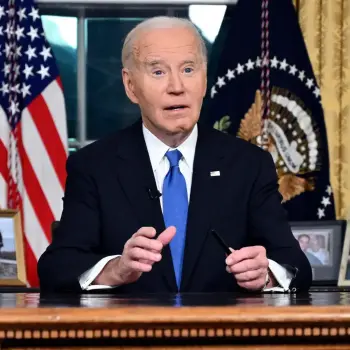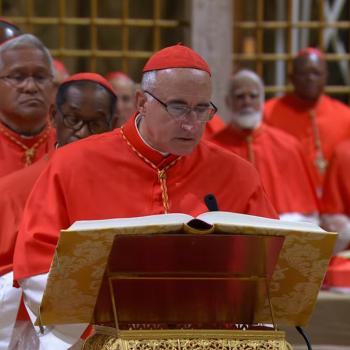I do not want to belittle the issue of undocumented migration. But as Christians we need to look at the log in our eye before we can remove the mote in the eyes of the undocumented. The undocumented desperately need fair and just immigration reform. But this will not solve the problem of undocumented migration into the U.S., no matter how much is used for border enforcement. As Christians we need to ask difficult ethical questions about the immigration issue. But let's address the issues we have created, not only those raised by the weakest members of our society, the undocumented.
 Kelly Monroe Kullberg is author or editor of several books, including Finding God at Harvard, and A Faith and Culture Devotional. She is the founder of The Veritas Forum. See her new site here.
Kelly Monroe Kullberg is author or editor of several books, including Finding God at Harvard, and A Faith and Culture Devotional. She is the founder of The Veritas Forum. See her new site here.
I offer my thoughts as one who has spent several wonderful summers among the very poor in Central America, and who seeks the counsel of Scripture in all its richness and wholeness. It's important to see through political slogans and emotional appeals and to focus on the breadth and balance of scriptural teaching, and so to recover a wisdom tradition that is adequate for the real world.
On the matter of immigration, it seems that we're called to balance teachings that encourage the welcoming of some (though apparently not all) strangers alongside teachings that encourage cultural and economic stability, the stewardship of resources for sustainable flourishing, and justice not only for the stranger who comes from afar but for the neighbor who already lives amongst us. Those who honor God and his Word will naturally love the foreigner, the fatherless, and the widow. The difficulty comes with the influx of hundreds of thousands of illegal immigrants into a region whose majority population is neither adequately equipped nor enthusiastic to receive them.
In this context it's appropriate to explore what is meant, in Scripture, by the usefulness of hedges and fences, the importance of just weights, and the sheer folly and even sinfulness of those who spend what they have not first saved. Individuals, groups, and nations that put themselves in debt, especially severe debt, place themselves in positions of vulnerability and even enslavement to those whom they owe. As the author of the Proverbs tells us, "The borrower is servant to the lender." At some point, it is neither wise nor right to put ourselves in deeper and deeper debt in order to provide greater and greater benefits to more and more people. We're first to put our own house in order.
It's hard to think of boundaries when our hearts are open and full. But the book of Proverbs, and Jesus, remind us of the folly and sin of presumption, of building on a weak foundation, of spending what one has not first saved, of giving what one has not first received. They also remind us to love not only the foreigner who comes to us in need, but our neighbors, such as those in Arizona, whose needs are being ignored. One man's "justice" ought not to be another man's "injustice." No one is entitled to steal from another. Lawlessness with escalating violence and incivility is not justice. Its yield is not peace. Blessing to one is not theft from another.
When the United States has paid down our own multi-trillion dollar (and growing) debt, when more of our unemployed are given the dignity of work, when we have regained cultural stability, strength, and wise leadership, we will be better able to afford an increased rate of immigration. In our present circumstances, however, we are a false hope.
Hopefully those who love Jesus Christ will continue to plant seeds of faith and wisdom that will help build up local cultures in Central and South America. Hopefully we will also restore our nation to thrift and productivity, so that we might lead the world in sustainable generosity, in defense of the cause of the fatherless and widow, and in sharing food, clothing, and cheerful hospitality.
Let's leave behind the easy sloganeering and confront the hard task of discernment. Just as Paul taught the Church to delineate among widows in order to find those for whom the Church would provide, we are called, I believe, to make difficult and principled decisions about stewardship and about providing the conditions for healthy flourishing communities that can welcome many strangers not with hostility but with hospitality. With kindness and grace. Obedience to the whole counsel of Scripture yields sustainable growth and goodness to those in need.
[See the full reflection here.]




